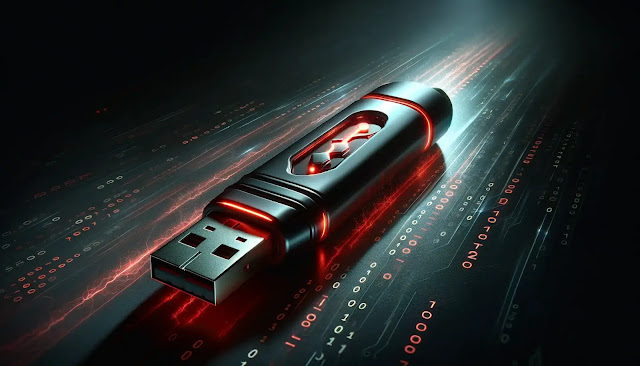How Hackers Use USB Drop Attacks & How to Prevent Them
In today's hyper-connected digital age, cyber threats come in many forms—some sophisticated, some shockingly simple. One of the most deceptive and low-tech forms of cyber intrusion is the USB drop attack. These attacks exploit human curiosity and can cause significant damage to organizations and individuals alike. If you're in the financial capital of India and looking to understand or combat such threats, enrolling in a Cyber Security Course in Mumbai can help you build the skills needed to recognize and prevent these types of attacks.
What is a USB Drop Attack?
A USB drop attack is a form of social engineering attack in which a hacker deliberately leaves a malicious USB flash drive in a public or semi-public place—like a parking lot, elevator, restroom, or office lobby—hoping someone will pick it up and plug it into a computer out of curiosity.
Once plugged in, the USB drive can:
-
Install malware or ransomware.
-
Create a backdoor for hackers to access the system remotely.
-
Steal login credentials or sensitive data.
-
Execute commands to gain administrator privileges.
This attack preys on the human tendency to explore the unknown or to return what might appear to be a lost item.
Real-World Example of a USB Drop Attack
In 2016, a study by the University of Illinois found that 48% of people plugged in "lost" USB drives they found in public places. In another high-profile incident, Iran’s Natanz nuclear facility was compromised in part due to USB-based malware known as Stuxnet—a highly sophisticated worm believed to have been introduced through an infected USB drive.
These examples underscore just how effective and damaging USB drop attacks can be.
Why USB Drop Attacks Still Work
Despite growing awareness of cyber threats, USB drop attacks remain effective due to:
-
Human Curiosity: Many people still assume a USB drive is harmless.
-
Lack of Awareness: Not everyone is trained in cybersecurity or understands the risks involved.
-
Social Engineering: Drives may be labeled with enticing names like “Confidential Salaries” or “Top Secret.”
-
Absence of Endpoint Protection: Systems without USB blocking or malware scanning are vulnerable.
Common Payloads Delivered by Malicious USBs
-
Keyloggers: Record everything typed on the keyboard, including passwords.
-
Ransomware: Encrypts the victim’s data, demanding payment to unlock it.
-
Reverse Shells: Provide hackers with remote access to the machine.
-
Autorun Exploits: Automatically execute malicious code as soon as the USB is inserted.
-
Rubber Ducky Scripts: USB devices like “Rubber Ducky” mimic a keyboard and execute keystrokes rapidly, allowing hackers to exploit systems in seconds.
How to Prevent USB Drop Attacks
1. Implement USB Port Control
One of the first steps organizations should take is to restrict USB access on company systems. This can be done by:
-
Using endpoint security solutions.
-
Blocking USB ports via BIOS or group policies.
-
Allowlisting only authorized devices.
2. Educate Employees
Regular cybersecurity awareness training can go a long way. Employees should be taught to:
-
Never plug unknown USBs into their systems.
-
Report suspicious devices to the IT team.
-
Understand the social engineering tactics behind such attacks.
3. Use USB Scanning Tools
Before using any USB, especially in sensitive environments, scan the device using reliable antivirus and anti-malware software.
4. Disable Autorun
Autorun features in Windows and other operating systems can be a gateway for malware execution. Always disable autorun functionalities to reduce risk.
5. Employ Device Encryption
Encrypt sensitive systems so that even if access is gained through a malicious USB, data remains secure and unreadable.
6. Physical Security Measures
Ensure that areas like parking lots, office entrances, and restrooms are monitored with CCTV and access controls. This reduces the chances of attackers planting malicious USBs.
7. Use USB Data Blockers
When charging phones or devices via public USB ports, use data blockers that only allow power transfer, not data exchange.
For IT Professionals: Hone Your Skills
If you're in Mumbai and working in or aspiring to join the cybersecurity field, it’s crucial to gain in-depth knowledge of social engineering tactics, endpoint protection, and incident response. Enrolling in a Best Cyber Security Course in Mumbai will provide you with real-world skills to recognize, mitigate, and prevent cyber threats like USB drop attacks.
Case Study: A USB Attack Simulation in a Corporate Office
A mid-sized software firm in Mumbai conducted a red team exercise to test employee awareness. They dropped 15 USB drives labeled “Q1 Bonuses” and “Company Strategy 2025” in common areas. Shockingly, 11 of the 15 USBs were plugged into corporate machines. Though these were dummy drives used for training purposes, the result showed how vulnerable even tech-savvy organizations can be.
Post-assessment, the company:
-
Tightened endpoint controls.
-
Conducted mandatory cybersecurity workshops.
-
Enrolled employees in the Best Cyber Security Course in Mumbai to boost internal defense capabilities.
Tools That Can Help Prevent USB Attacks
-
USBDeview: Monitors USB devices connected to a system.
-
GFI EndPointSecurity: Prevents unauthorized USB usage.
-
BitLocker Encryption: Protects data in case of a USB-delivered attack.
-
Sysinternals Suite: Tools like
Process MonitorandAutorunscan help detect malicious activity originating from USBs.
Conclusion
USB drop attacks might seem outdated in an era of AI and advanced phishing scams, but they remain a highly effective and dangerous method of infiltration. With just one act of curiosity, a hacker can gain access to sensitive networks, financial data, or intellectual property.
The best defense against such attacks is awareness, education, and proactive security policies. For individuals and businesses in Mumbai, enrolling in the Best Cyber Security Course in Mumbai is a smart move to stay ahead of emerging threats. With practical training in ethical hacking, endpoint protection, and incident response, you'll be better equipped to handle real-world cybersecurity challenges.
Ready to become a defender in the digital age? Learn how to stop attacks before they start. Start your journey with the Best Cyber Security Course in Mumbai today!




Comments
Post a Comment